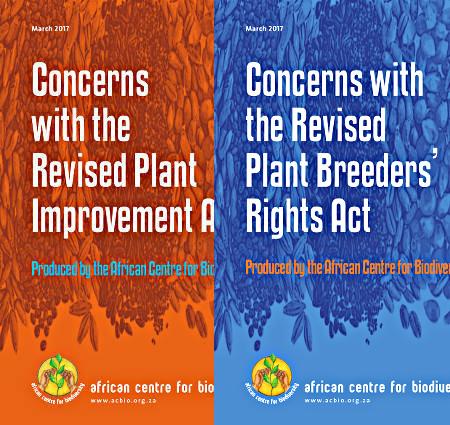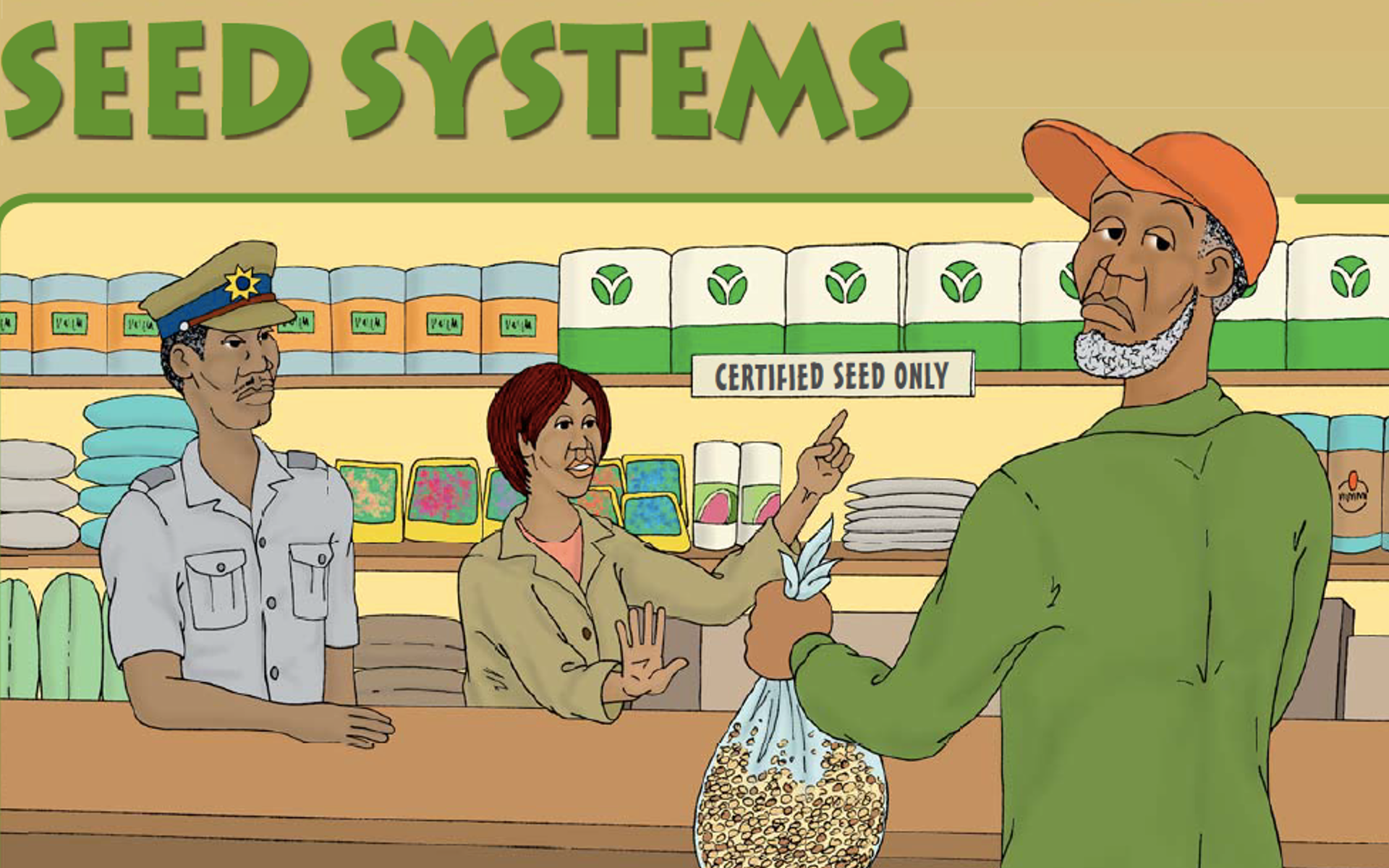Latest Resources

5 May 2017
Harmonisation of Africa’s seed laws through SADC and COMESA
Harmonisation of Africa’s seed laws through SADC and COMESA Afrikaans | English | French | Portuguese | Shona | Swahili | Xhosa | Zulu Impacts of harmonisation of seed laws on farmer managed seed systems and small scale farmers Afrikaans | English | French | Portuguese | Shona | Swahili | Xhosa | Zulu Seed […]

27 March 2017
Briefings on the revision of South Africa’s seed laws: Entrenching an unjust and unsustaina...
As we continue to engage and mobilise around the seed policy and legislation revisions, ACB has developed 2 easy-to-read documents outlining the central concerns and possible alternative directions for seed policy to move in South Africa. Despite the public interest to support an equitable seed system, the Plant Improvement and Plant Breeders’ Rights Bills, create […]

13 January 2017
Hands OFF Our Food Systems! Small Farmers NOT Corporates Feed Africa
This lobby paper Who will feed Africans: Small-scale farmers not corporations! produced by the partnership between FoEA and ACB, makes the compelling case for African agriculture to transition towards agroecology and food sovereignty, recognising and strengthening the role of small scale farmers, rather than benefiting few large scale corporations with detrimental ecological, socio-economic, and nutritional […]

30 November 2016
African Civil Society and farmer representatives blocked from ARIPO deliberations on regional see...
The authoritarian nature of the African Intellectual Property Organisation (ARIPO) Secretariat and its undemocratic processes are scandalous and unacceptable. Locking African farmer representatives and civil society out in order to allow unfettered draconian regional law making is deeply disturbing. What is at play here is entrenching an agricultural future for smallholder farmers in the 19 […]

17 November 2016
Comments on the revised draft regulations (draft 3) for implementing the Arusha Protocol for the ...
Further comments on the revised regulations (draft 3) for the implementation of ARIPO’s Arusha Protocol for the Protection of New Varieties of Plants, that will be submitted for adoption in December 2016. This paper focuses on some of the most problematic aspects that needs to be rectified by ARIPO Member States as these perpetuate impingement […]

11 August 2016
Easy to read Seed Posters
Previously, the ACB shared with you, easy to read seed posters on intellectual property rights, UPOV 1991, the Arusha Plant Variety Protection Protocol, etc., and implications for smallholder farmers and farmers’ rights. Now, we are happy to announce the release of the second set of easy-to-read seed posters, dealing with seed laws that regulate the […]

28 July 2016
ACB Preliminary comments on Draft Regulations Implementing the Arusha Protocol for the Protection...
Draft Regulations for the implementation of the African Regional Intellectual Property Organisation’s (ARIPO’s) Arusha Protocol for the Protection of New Plant Varieties (Arusha Protocol), were considered for adoption in June 2016. The proposed regulations included provisions designed to intimidate and force seed processors, seed suppliers, government certification officers and even farmers’ organisations to police and […]

28 July 2016
ACB comments on revised Draft Regulations (Draft 2) for Implementing the Arusha Protocol for the ...
The revised regulations for the implementation of the African Regional Intellectual Property Organisation’s (ARIPO’s) Arusha Protocol for the Protection of New Varieties of Plants continues to perpetuate the impingement of national sovereignty, fails to safeguard farmers’ rights and farmer seed systems and to provide safeguards against biopiracy. These comments, submitted to ARIPO, raise concerns and […]

13 July 2016
Soil fertility: Agroecology and not the Green Revolution for Africa
This synthesis report summarises ACB’s research on the Green Revolution push in Africa, based on fieldwork conducted in Malawi, Mozambique, Tanzania, Zambia and Zimbabwe over the past three years. The research indicates that the promotion of synthetic fertiliser use in Africa is only a short-term fix for enhancing soil fertility on the continent. In the […]

11 July 2016
Farm Input Subsidy Programmes (FISPs): A Benefit for, or the Betrayal of, SADC’s Small-Scale Farm...
This paper reviews the farm input subsidy programmes (FISPs) within countries belonging to the Southern Africa Development Community (SADC), to ascertain whether input subsidies have benefited small-scale farmers, have increased food security at the household and national levels, and have improved the incomes of small-scale farmers. Download the report.
